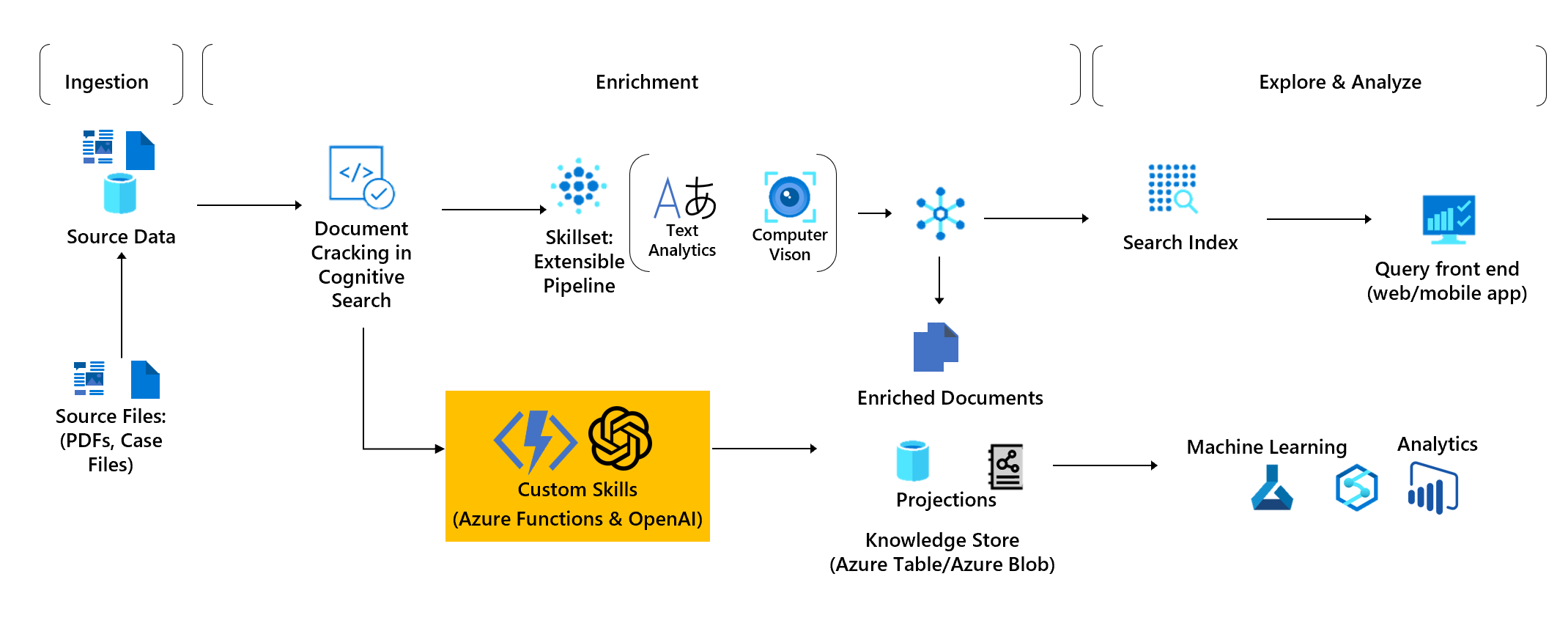Azure OpenAI integration as a custom skillset in Azure Cognitive Search
OpenAI has revolutionized the way we develop applications by providing state-of-the-art machine learning models and making it easy for developers to add AI capabilities to their applications without needing to have an extensive background in data science.
In addition, many of the OpenAI models are available on Azure, where you can get the security capabilities of Microsoft Azure while running the same models as OpenAI. Azure OpenAI offers private networking, regional availability, and responsible AI content filtering.
However, even if OpenAI APIs are very easy to use and integrate, you may have faced some of these limitations:
- Format: OpenAI only supports text or json format. If you want to analyze enterprise documents such as PDF, Word, PowerPoint, etc., you need to extract or transform your data.
- Source: You cannot directly connect OpenAI to data storages like a database, a SharePoint or a Data Lake.
- Token limitation: Depending on the model used, OpenAI requests can use up to 4097 tokens shared between prompt and completion. To analyze longer documents, the text needs to be split into multiple pieces.
This is where Azure Cognitive Search comes as a great comes as a great complement to Azure OpenAI.
- Data Integration: Azure Cognitive Search has connectors to many Data Sources to simplify data ingestion into a search index.
- Data transformation: Transforms large undifferentiated file formats into into searchable text. Using the Optical Character Recognition skill, it can even process images.
- Split text: The Text Split skill breaks text into chunks of text. You can specify whether you want to break the text into sentences or into pages of a particular length. This skill is useful for the maximum text length requirements in OpenAI.
- Translation capabilities: The Text Translation skill evaluates text and returns the text translated to the specified target language. Microsoft Translation API supports more than 70 languages for text translation, while OpenAI has only limited support for a few other languages than English.
Azure OpenAI can offer additional AI enrichment to your Cognitive Search index such as:
- Document classification
- Document summarization
- New insights generation
- KPI extraction
- Etc.
In this example, we will add summarization capability to the Cognitive Search index using Azure OpenAI.
To deploy this project you'll need these Azure resources:
-
Azure Cognitive Search : S1 tier is recommended
-
Azure OpenAI: With the text model of your choice
-
Python Azure Functions: For this project, I used Python 3.9
For the development, it is recommended to use Visual Studio Code and Postman.
For Visual Studio Code, you can install the Azure Function extension and the Azure Function Core Tool.
- Deploy your OpenAI custom skill using Azure Functions.
- Integrate it in your Cognitive Search Indexer.
- Query your new index.
